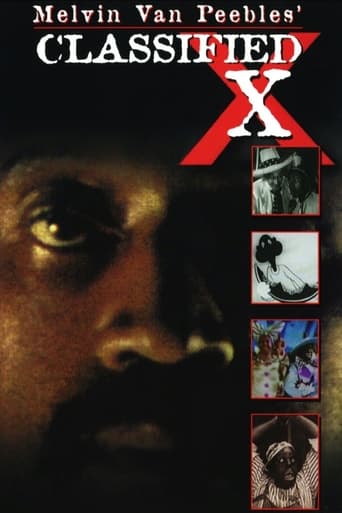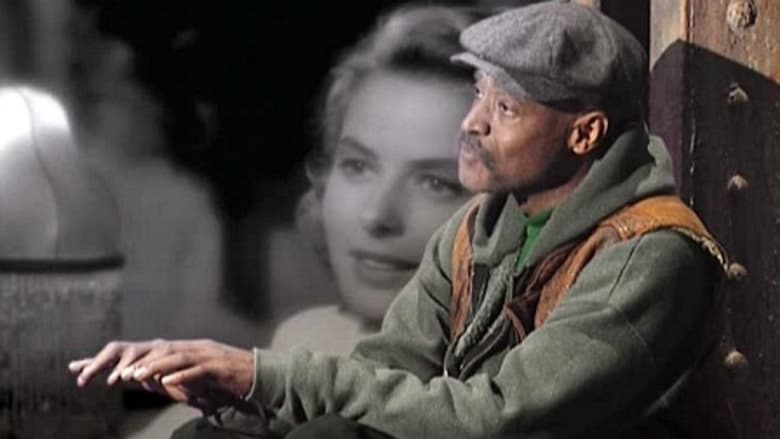A history of the racially stereotyped portrayal of African Americans in cinema, hosted by film pioneer Melvin Van Peebles.


Reviews
Melvin Van Peebles came to moviegoers' attention when he released "Sweet Sweetback's Baadasssss Song", in which he played a hustler who has to go on the lam after killing some cops who were attacking a Black Panther. The movie was widely seen as the first frank look at what African-Americans wanted to say about their experiences, as opposed to what would make whites comfortable. Van Peebles released the movie with the tagline RATED X BY AN ALL-WHITE JURY.With "Classified X" Van Peebles takes a look at the portrayals of African-Americans in movies since the birth of cinema. Lest you think that the racist depictions started with "The Birth of a Nation", Van Peebles includes scenes from Thomas Edison's movies which use blacks as the incompetent comic relief. From the portrayals of savages in loin cloths to modern movies in which blacks raise the consciousness of a white hero, Van Peebles has ample criticism of the depictions.It's important to understand that this is part of US history. Van Peebles notes that the white power structure basically convinced blacks that these depictions were OK. I would've liked to hear Van Peebles's opinion of movies like "Buck and the Preacher". He noted that theaters now siphon off money from movies like "Malcolm X". I would like to see an update to see what Van Peebles's opinion of movies since 1998 that have focused on race relations, although I can guess what he would say about some movies. In the end, I recommend this one.
I've meant to watch this documentary for quite some time, primarily because Spike Lee cited it as a major influence on his own narrative film, Bamboozled. Classified X is good, especially in its presentation of 100 years of movie representation of African Americans. I especially like its useful designation of periods in film history (the decades of independent black cinema, the "new Negro" period, the "no Negro" period, etc.).There are a few times when I wish the film provided more careful explanation of how the discrimination against African Americans generally and African American films specifically happens. For example, near the end of the film, Van Peebles says that, with movies like Malcolm X and Panther, theaters siphon off the profits at the box office. I'd like to know what that means. Is it a problem of how many screens the movies are shown on? Or how many screens are hogged up by movies that the studios support more wholeheartedly? I plan to use this movie in a college course about race in the mass media, and I think it will be provocative and educational, but the occasional lack of detailed explanation will be a slight stumbling block for my mostly white, mostly middle class students (as it is at least a minor disappointment for white, middle class me!). Perhaps this movie will simply be a bold starting point for a longer and sometimes difficult learning journey.
Melvin makes a lot of good points in this movie, and it becomes painfully obvious that in cinema, racism has festered over time. Lately, the casting and representation of blacks in films has improved greatly. However, the tone of the film was too bitter. I could easily mope around and lament about how upset it makes me that the white actor was always portrayed as a wealthy landowner or action hero, and cite just as many examples as he does. After I saw this film, all I could muster was a "Yeah, and...." I guess my point is that Van Peebles is trying to muster up sympathy for black cinema actors while pointing the fingers at the mostly white movie studio and casting executives of that time, and, taking from his example, I could make a film which musters up sympathy for the white actors that were portrayed as extremely racist or prejudiced landowners or business people or action stars or in any other bad light just as easily.
A compelling movie. Van Peebles provides a lot of interesting historical information. He argues that while the portrayals of black characters have changed over the years, they are still as racist as ever, and that Hollywood suppresses black filmmakers. I find it a bit difficult to sympathize with him since he seems to think that the only movie in history that had any value is one he made himself. He barely gives Spike Lee and John Singleton a passing mention.


